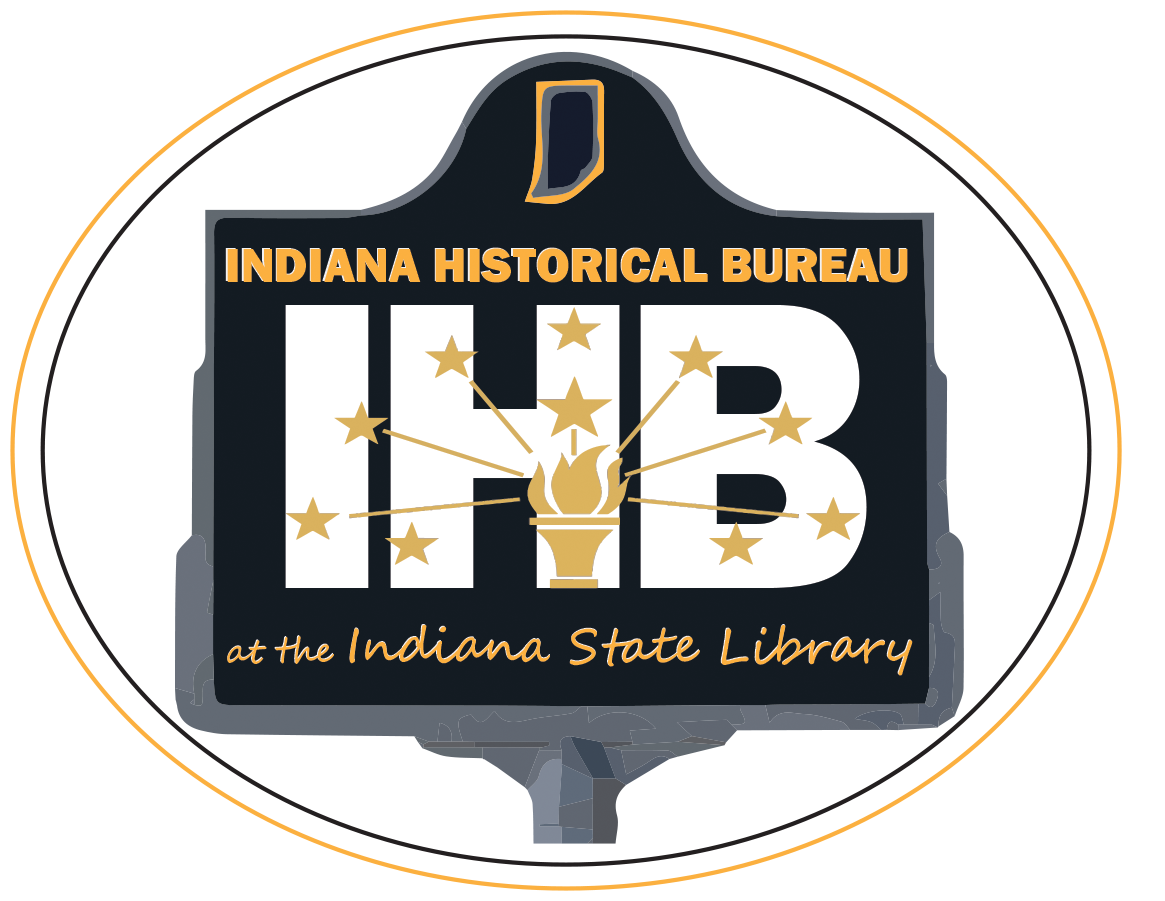Transcript for Episode 3 of the 2024 Season of Talking Hoosier History.
Written by Nicole Poletika and voiced by Justin Clark. Produced by A.J. Chrapliwy.
Gloria Frankel was cleaning up the backroom of her bar on the morning of November 26, 1982 when flames leaped through the front windows. Something whirled through the bar’s foyer, where faithful patrons had gathered just hours before to blow off steam. But now, a blaze ignited and began to consume the business Frankel had worked so hard to build up. Firefighters raced to extinguish the fire and successfully evacuated tenants, which included children and pets, who lived in the apartments above the bar. Although firefighters contained the fire to the front of the building, it inflicted approximately $90,000 worth of smoke damage to the bar —nearly $300,000 today– and one tenant was taken to the hospital for smoke inhalation.
Frankel had ten days to get her bar up to code, or city officials would shut it down. She had managed to keep it open despite police harassment and discriminatory city ordinances. This was no easy feat, considering she was a queer woman operating a business that served a persecuted community. The firebombing of Seahorse Cabaret, South Bend’s premier gay bar, surely felt like an insurmountable obstacle. And, if Frankel could not overcome it, she would not only suffer a tremendous personal loss, but the area would lose one of the few safe spaces in which LGBTQ residents could congregate.
In this episode, we’ll explore the intrepid woman who mobilized the community to rebuild the bar and led the charge for gay rights and visibility in the South Bend area.
I’m Justin Clark and this is Talking Hoosier History.
Frankel was born in 1940 in Columbus, Ohio. She grew up in South Bend, and later worked as a taxi driver and owned a janitorial service before establishing The Seahorse, the city’s first gay club, by 1975. Its opening followed the famed Stonewall Riots of 1969, in which members of New York City’s LGBTQ bar community responded to a police raid with a series of violent protests. The riots immediately forwarded the gay liberation movement and the fight for gay rights in America. Queer individuals in smaller cities quietly capitalized on this momentum by opening gay bars, which fostered a sense of community and provided patrons with a relatively safe space in which to socialize and organize.
Frankel filled this role in South Bend with The Seahorse. Her bar hosted drag shows, fundraisers, and gay rights meetings, which, historian Ben Wineland noted, “embodied the new kind of confidence and visibility that the Stonewall riots helped to create.” Like those who frequented the raided Stonewall Inn, patrons of The Seahorse encountered an intimidating police presence, in which officers instilled fear. Frankel recalled in 2005:
“I always wanted to open a bar where gay people openly socialized with each other. Back when I first opened the bar, people were ashamed of who they were and frightened of the severe consequences if they were found out. And at the time, being caught in a gay bar would land you in jail and lose you your job.”
Wineland contended that The Seahorse was considered a threat by law enforcement because it “became more than just a hole in the wall, it looked to the opposition like hope; a hope for visibility, mainstream appeal, and a point of organization for the gay movement.”
According to oral history interviews with Seahorse patrons, a city ordinance prohibited same sex dancing. One interviewee recalled that if men were found dancing or being affectionate with other men they would be arrested, escorted to the police station, and charged with a lewd act. Frankel combated this by successfully challenging the City of South Bend to allow same sex dancing in 1974.
Her constant fight for the well-being of the gay community may have been the reason unknown perpetrators targeted and threatened her with violence. In 1975, her Cadillac Eldorado was stolen and set on fire in the middle of the night. That same year, a “Concerned Patron” wrote to the South Bend Tribune that the bar had to board its windows due to “rock and bottle throwing incidents,” and that patrons only entered through the front door as a safety precaution. Nevertheless, Frankel’s Seahorse hosted events for the Michiana chapter of the Lambda Society–the nation’s first legal organization dedicated to gay equality–advancing the local LGBTQ community. Frankel also served as an unofficial mentor to others in South Bend who established gay bars, such as Jeannie’s Tavern and Vickie’s. She provided significant input to her “bar children” regarding their businesses.
Pop singer, evangelical Christian, and anti-gay rights activist Anita Bryant’s controversial 1977 visit to South Bend surprisingly spurred more support for the local gay community. Grounded in her religious convictions, Bryant had launched the “Save Our Children” campaign, which led to the repeal of a Dade County, Florida, ordinance that would protect the rights of homosexual residents. She sought to influence similar ordinances around the country. The Michiana Human Rights Coalition formed ahead of Bryant’s October 26th concert at the University of Notre Dame, located in South Bend. That evening, only 500 of the arena’s 10,000 seats were occupied. Protesters marched with signs bearing Bible verses and Shakespearean quotes reaffirming human rights. The number of protesters, both in support of and opposition to Bryant, nearly matched that of concert-goers. Bryant’s efforts to keep gay individuals from obtaining their rights clearly inspired organized resistance in Indiana.
Just as South Bend’s LGBTQ community grew in strength, unknown individuals lobbed a firebomb into The Seahorse in 1982. Pieces of the ceiling and ash covered the floor where so many had danced under twirling disco balls. Though devastating, the bombing ultimately demonstrated the solidarity of the South Bend’s LGBTQ community, which Frankel had nourished. According to code, the bar would be shut down if it could not get back to standards within ten days. Patrons rallied to repair and clean it, shocking officials by getting the club back to code and reopening within the allotted time. They celebrated by hosting their annual anniversary party. Yet no one was tried for the crime, even though investigators deemed it arson.
Shortly after the bombing, the city used code enforcement to stymie Seahorse operations. This included denying the routine renewal of a liquor license and challenging the acquisition of a parking lot for customers. The Seahorse perceived these actions as discriminatory, while the city insisted they were not. Ultimately, Frankel filed suit against the city, saying “I think somebody’s got a problem with the gay situation. Lawyers, doctors, blue-collar workers, people from all walks of life come here. We run an upfront operation and they’re talking about depriving us of our livelihood.” After a series of hearings, in February 1986 The Seahorse was again granted a liquor license at a meeting at the County-City Building, prompting cheers from the many patrons in attendance.
As an emerging disease began to ravage gay men across the country, Frankel solidified herself and her bar as a pillar of South Bend’s gay community. In the early 1990s, she led the local fight against HIV/AIDS, funding AIDS ministries and providing free HIV testing at The Seahorse. Frankel stated:
“At that time gays were being terribly discriminated against, and many were afraid to go [to] the health department to get tested. So with the help of some friends, we cleaned up the back garage and turned it into a counseling center.”
The Seahorse continued to be foundational to South Bend’s LGBTQ community until 2007. That year, Gloria Frankel passed away, and her bar closed shortly thereafter. Jeannie’s Tavern became the home of Seahorse patrons and performers. Perhaps Frankel’s tenacity and persistence had primed South Bend citizens to elect Afghanistan War veteran Pete Buttigieg in 2011, making him Indiana’s first openly-gay mayor. Just three years later, on October 6, same-sex marriage was legalized in Indiana. Perhaps couples who met on the dance floor of The Seahorse walked down the aisle that historic day.
If you want to learn more about this topic read: “Gloria Frankel & The Seahorse: The South Bend LGBT Club’s Fight for Gay Rights” by Nicole Poletika on our Untold Indiana blog. We’ll put the link in the show notes.
State historical markers are also a great way to learn about Hoosier history. In 2021, we dedicated our first LGBTQ history marker, which examines Indiana Pride, particularly the demonstrations and celebrations that took place on Monument Circle. Visit our website to learn more about the marker and the origins of Pride.
This episode was written by Nicole Poletika and produced by Jill Weiss Simins. Find a transcript and show notes for this and all our episodes at podcast.history.in.gov. And remember to subscribe, rate, and review Talking Hoosier History wherever you get your podcasts. Once again, I’m Justin Clark, and this has been Talking Hoosier History. Thanks for listening!
Sources:
Conversation with Margaret Fosmoe, a South Bend Tribune reporter who graciously searched the newspaper’s archive for articles for IHB.
Conversation with Katie Madonna Lee, producer of a forthcoming documentary about The Seahorse. Lee has conducted interviews and done extensive archival research about South Bend LGBTQ history.
Diane Frederick, “Homosexuality Laws Vary Widely,” Indianapolis News, August 22, 1975, 1, Indiana State Library, Clippings File-Homosexuality.
The South Bend Tribune, September 4, 1975, accessed Newspapers.com.
“The Seahorse,” The South Bend Tribune, September 11, 1975, accessed Newspapers.com.
Kathy Harsh, “Arson Suspected in Tavern Fire,” South Bend Tribune, November 26, 1982, Indiana State Library microfilm.
Judy Bradford, “Seahorse II Owners Claim Harassment over Clientele,” South Bend Tribune, January 9, 1986, accessed Newspapers.com.
St. Joseph County Public Library, Michiana Memory, LGBTQ Collection of the Civil Rights Heritage Center.
“Frankel Reaches 2 Milestones,” The South Bend Tribune, April 28, 2005, accessed Newspapers.com.
Obituary, “Gloria Frankel,” October 9, 2007, accessed Legacy.com.
Ben Wineland, “Then and Now: The Origins and Development of the Gay Community in South Bend,” Indiana University South Bend Undergraduate Research Journal of History, vol. VI (2016): 69-79, accessed scholarworks.iu.edu.
Show Notes
Written by Nicole Poletika and performed by Justin Clark. Produced by Jill Weiss Simins.
For footnotes, primary sources, and more info on Gloria Frankel & The Seahorse visit the Untold Indiana Blog: https://blog.history.in.gov/gloria-frankel-the-seahorse-the-south-bend-lgbt-clubs-fight-for-gay-rights/


